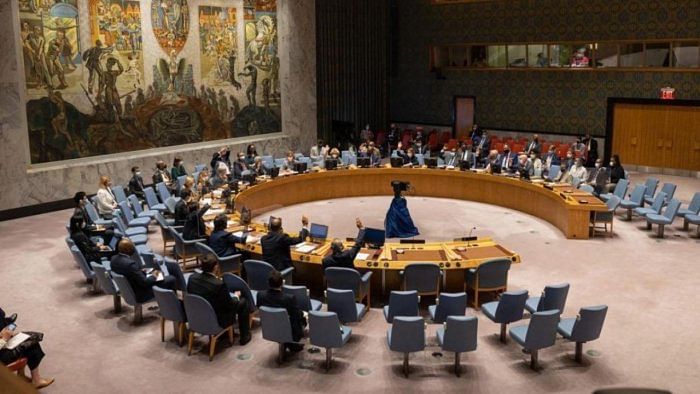
A tweet by the ruling Bharatiya Janata Party’s MP, Subramanian Swamy, on Sunday fuelled speculation about India’s participation in a purported move at the United Nations Security Council (UNSC) to pass a resolution without referring to the Taliban of Afghanistan as a terrorist organisation.
“I am surprised to hear that India as Chairman of the UN Security Council is going to pilot a Resolution on Afghanistan in the UNSC tomorrow after deleting the word Terrorist to describe Taliban. Already knees are knocking?” Swamy, who often crosses party lines to express his views, posted on Twitter, apparently taking a dig at Prime Minister Narendra Modi’s government.
His tweet came a day after External Affairs Minister S Jaishankar and the US Secretary of State, Antony Blinken, spoke over phone and discussed about the situation in Afghanistan and exchanged views on the agenda of the UNSC.
India, currently a non-permanent member of the UNSC, has been holding the rotating presidency of the council since August 1. It’s current term as the UNSC president will end on Tuesday, although it will continue to be a member of the council till December 2022.
Foreign Secretary Harsh Shringla reached New York on Sunday. He will attend the wrap up sessions of India’s UNSC presidency on Monday and Tuesday.
India also at present chairs the UNSC’s 1988 Sanctions Committee, commonly known as Taliban Sanction Committee.
“If difficulty in calling Taliban terrorists, let India move resolution in Security Council terming Afghanistan a rogue state under IS-Taliban axis power, where from even her own citizens trying to flee, not to speak of non-Afghans still trapped inside,” Sukhendu Sekhar Ray, an MP of the Trinamool Congress, posted on Twitter, criticizing the Modi Government.
Ever since the Taliban took over Kabul on August 15 after occupying many provinces in a swift blitz across Afghanistan, speculation was rife about the status of the UNSC’s curbs on the militant organization.
France and the United Kingdom are likely to move a draft resolution at the UNSC on Monday, asking the Taliban to facilitate a safe zone run by the civilians at the Hamid Karzai International Airport in Kabul to allow continued evacuation of people keen to leave Afghanistan.
The UNSC on August 16 “reaffirmed importance of combating terrorism in Afghanistan to ensure the territory of Afghanistan should not be used to threaten or attack any country and that neither the Taliban nor any other Afghan group or individual should support terrorists operating on the territory of any other country.” The council, however, avoided a direct reference to the Taliban in another statement issued last Friday, after twin explosions killed over 100 near the airport in Kabul. “The Security Council reiterated the importance of combating terrorism in Afghanistan to ensure the territory of Afghanistan should not be used to threaten or attack any country, and that no Afghan group or individual should support terrorists operating on the territory of any country,” it stated in a statement issued by India’s envoy to the UN, T S Tirumurti, as the president of the council.
India on August 19 refrained from directly criticizing the Taliban, but conveyed concerns over heightened activities of its ally, Haqqani Network, which sent hundreds of gun-toting militants from Pakistan to Afghanistan over the past few weeks.
New Delhi has over the past few months informally reached out to the Taliban, anticipating that it may return to power in Kabul after withdrawal of troops by the United States and its NATO allies from Afghanistan and Pakistan may try to use it to get a strategic edge over India in the region.
India will decide on its engagement with the new regime in Afghanistan after taking into account whether it will be born out of an inclusive and broad-based power sharing arrangement or solely run by the Taliban, the government told the leaders of the political parties on August 26.
Check out DH's latest videos:
